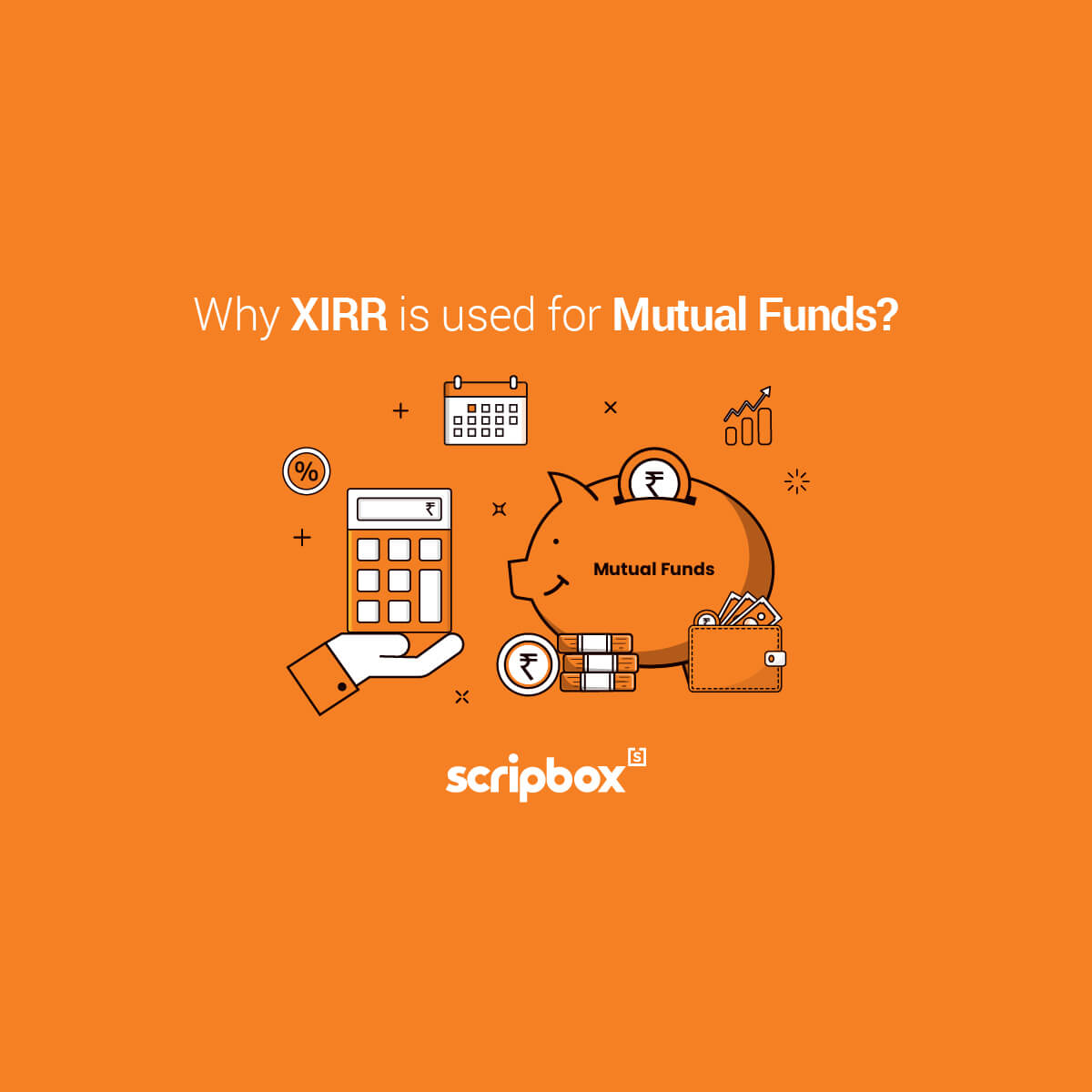In this article
11 Mins
Article Content
- What is a Real Estate Investment Trust (REIT)?
- How Do REITs Work?
- Popular REITs in India To Invest
- How Does a Company Qualify as a REIT?
- Types of Real Estate Investment Trusts
- Advantages and Disadvantages of Investing in REITs
- Difference Between REITs and Real Estate Mutual Funds
- Popular Real Estate Mutual Funds to Invest
- Who Should Invest in a Real Estate Investment Trust?
- How to Invest in REITs ?
- Things To Remember While Investing in REITs
- Frequently Asked Questions
What is a Real Estate Investment Trust (REIT)?
Real Estate Investment Trusts are similar to mutual funds. They pool money from multiple investors and use that to buy income-generating real estate properties. REITs manage these assets so that they can earn from capital appreciation and rental income.
Scripbox Recommended Goals
Plans that will help you to achieve your life goals across multiple time frames.
It invest in properties like office spaces, warehouses, malls, etc., where the investments can generate rental income. However, Indian REITs mainly focus on office properties. Through REITs, investors can earn regular income in the form of a dividend. This dividend is paid from the rental income the company earns.
The minimum investment is not high, enabling both small and big investors to participate in the real estate market of India. In India, when REITs were introduced a couple of years back, the minimum investment was INR 50,000 with a lot size of 200 units. However, SEBI has brought down the minimum investment to INR 10,000-INR 15,000 with a lot size of one unit. This was to increase liquidity in the REIT space and also encourage more listings.
How Do REITs Work?
REITs have a similar structure to that of mutual funds with a sponsor, fund management company and a trustee. The sponsor promotes the REIT with its funds, and the fund management company selects and buys properties for the portfolio. The trustee ensures that the funds collected are utilized and managed, keeping the investor’s interest in mind. Through REITs, investors gain by earning regular income in the form of dividends and also can diversify their investment portfolio.
Popular REITs in India To Invest
| Name | Occupancy | 52 Week High Share Price |
| Brookfield India Real Estate Trust | 86% | Rs. 337.28 |
| Embassy Office Parks REIT | 87% | Rs. 394.95 |
| Mindspace Business Parks REIT | 84.6 % | Rs. 365.00 |
How Does a Company Qualify as a REIT?
In accordance with the SEBI guidelines and Section 4 of the Regulations, the following are the eligibility criteria for REITs:
- The instrument of trust must be registered as a deed under the Registration Act, 1908.
- The trust’s main objective should be to carry on the REIT activities.
- Trustee, sponsor and manager should all be separate entities.
- The parties to the REIT are fit and proper persons as per Schedule II of SEBI (Intermediaries) Regulations, 2008.
- Whether or not any previous certificate applications have been denied.
- Whether any regulatory action has been taken against REIT participants.
- No multiple classes of REITs.
- The corporation must have a minimum asset base of INR 500 crores.
- 90% of the net distributable cash flow should be distributed to unitholders in the form of interest or dividends.
- 80% of the total investment should be placed in income-generating assets. Only 20% of the total investment can be made in under-construction assets.
Types of Real Estate Investment Trusts
There are six types of REITs in India based on the type of business they are involved in and whether they are private or public entities. Following is the list of different types of REITs:
- Equity REITs: These are the ones where the it owns all the income-generating properties. It generates income through rents. This is the most popular type of REIT. The income earned will be distributed to all the investors.
- Mortgage REITs: Mortgage REITs or mREITs lend money to businesses that are in the real estate industry. They do not earn income from rent but through EMI or mortgage payments. These are also acquire mortgage-based properties and earn income in the form of interest, which is shared with all the investors.
- Hybrid REITs: These have both owned properties and mortgage-based properties and earn regular income through rent and interest. It allows investors to diversify and earn through both sources.
- Private REITs: These have a limited number of investors and work as private placements. They are not registered with SEBI and are also not listed on any stock exchange.
- Publicly Traded REITs: It is listed on the stock exchange (NSE) and is also registered with SEBI. Investors can buy and sell shares of it through a stock exchange. They are more liquid but are subject to market volatility.
- Public but not listed REITs: This type of real estate investment trust is registered with SEBI but is not listed on the stock exchange. Hence, they are less liquid than a publicly-traded but considerably more stable as the volatility is low.
Advantages and Disadvantages of Investing in REITs
Advantages
- Diversification: REITs are good assets for the diversification of your investment portfolio. They offer real estate exposure without the hassle of owning and managing any commercial property. Therefore, they are an asset class that you can consider for diversification beyond the usual asset classes – equity, debt, and gold.
- Low Investment: Real estate investments are usually high-ticket investments that require greater capital. They are a good alternative to these high-ticket investments. The initial investment for REITs is around INR 50,000. Therefore, you are able to achieve real estate exposure to your investment portfolio with low investments.
- Professional Management: A REIT is a trust, association or corporation, and hence professionals manage them. You do not have to worry about managing commercial real estate properties.
- Regular Source of Income: REITs generate income through rents. It distribute 90% of the rental income to the investors as interest and dividend payments. Therefore, investors can enjoy regular income from their investments.
- Capital Gains: REITs trade on the stock market, and their performance determines their value. A well-performing REIT can thus possibly increase in value and investors can sell it at a profit over time. The investor can then enjoy the Capital Gains from their investments.
Recommended: You should know the difference between investing in real estate and mutual funds
Disadvantages
- Limited Options: They are fairly new to the Indian markets. Currently, there are only a few options available, and hence limiting the investor’s choices.
- Liquidity: Though REITs trade on the stock market, the number of active retail participation is low. Therefore, liquidating REIT investments can be challenging in times of emergencies.
- Taxation: The interest or dividend income from REITs is entirely taxable in the hands of the investor. This income will be a part of the taxable income. And it will be taxable as per the applicable tax rates.
Difference Between REITs and Real Estate Mutual Funds
REITs and Real Estate Mutual Funds are similar as they offer real estate exposure at low investments. However, there are significant differences between the two.
| Basis of Difference | REITs | Real Estate Mutual Funds |
| Investment | Directly invest in real estate | Invest in REITs and stocks that deal in real estate. |
| Diversification | Narrower diversification | Offer wider diversification |
| Dividends | 90% of REITs’ taxable income is paid as dividends or interest to the investors. | Real estate funds offer value through appreciation, and therefore, are not regular income-generating options. |
| Trading | Trade on major stock exchanges, just like stocks. Their prices fluctuate during trading hours. | Real estate mutual funds do not trade on the stock market, and the prices are updated only once a day. |
Popular Real Estate Mutual Funds to Invest
- PGIM India Global Select Real Estate Securities FoF fund
- Mahindra Manulife Asia Pacific REITs FOF fund
- Kotak International REIT FOF fund
- SBI Infrastructure Fund
- Sundaram Infrastructure Advantage Fund
- Quant Infrastructure Fund
- Invesco India Infrastructure Fund
- Tata Infrastructure Fund
Who Should Invest in a Real Estate Investment Trust?
REITs are real estate investments that help diversify an investment portfolio and also hedge against inflation. Hence investors looking for investments other than stocks and bonds can consider investing in real estate investment trusts.
With SEBIs recent regulations, the minimum investment has considerably reduced to INR 15,000. Also, the lot size has been reduced to one unit. Hence investors who can afford to invest this amount can go ahead and invest.
It pay regular income in the form of a dividend. Hence investors looking for regular income can consider investing in real estate investment trusts. They are long term investments, and investors looking for a long-term investment can consider investing in them.
How to Invest in REITs ?
Investments in REITs can be done in any of the following ways:
Investing through IPO
Similar to equity stocks, REITs are also launched through an Initial Public Offering (IPO) and follow on public offer (FPOs). Therefore, it is mandatory to have a Demat Account. Once the initial offer is closed, and the allotment is done, REITs trade on the stock exchange.
Prior to July 30th, 2021, the minimum investment amount for a REIT investment was INR 50,000. However, post-SEBI’s notification on July 30th, 2021, the minimum investment amount is between INR 10,000 to INR 15,000.
The minimum lot size for REITs has also been reduced from 100 units to 1 unit in the same SEBI notification.
Investing through stock exchanges
Like ETFs, REITs also trade on stock exchanges. Similar to stocks, the REIT prices also flucatute based on the demand, supply and performance of the REIT. To invest in REITs through stock exchange investors must have a Demat Account.
Investing through mutual funds
In addition to the above two ways, investor can also invest in REITs through mutual funds. Currently, in India there aren’t too many mutual funds investing in REITs. Furthermore, investors can also invest in internation realestate through international REIT fund of funds. These funds invest in international REITs.
Things To Remember While Investing in REITs
As an investor, you should consider the following parameters before choosing a REIT for your investment portfolio:
- Occupancy Ratio: Check the occupancy ratio, which is the ratio of occupied or rented space to the total available space.
- Portfolio: It is essential to look at the portfolio holding of the REIT. Understanding the clientele is important. Companies across different sectors occupy spaces in REITs. Therefore, it is essential to analyse the tenant’s profiles as well. Non-payment or irregular rent payments can have an impact on the REIT. Furthermore, currently, there is no regulation by SEBI on the regularity of cash flows from leased or rented properties.
- Geographical Diversification: Assets focussed across one city can be dangerous. State-specific regulations control real estate movements, and these vary from state to state. The asset portfolio should be well-diversified across different regions to protect the interest.
- Sector Diversification: Historically seen, the IT sector has been the prime occupier of premium and high-quality office spaces. Over-dependence on one sector can be risky. As seen recently, working from home can be the new normal. Vacant spaces or non-payments will affect the REITs performance. Therefore, while choosing a REIT, ensure that the asset portfolio is well-diversified across different sectors such as Banking, FMCG, Healthcare, Pharma, etc.
- Rolling renewals and Re-leasing spread: Usually, the leasing commitment period is around five years. The rolling renewals indicate the number of tenants who are exercising their renewal options at the end of the lease period. A good number of rolling renewals will indicate stable returns. Re-leasing spread is the change in the per square feet (PSF) rate between the new and expiring leases. It is expressed as a percentage that signifies the REITs ability to execute the new leases at the increased prices for the same property.
Other Factors
Various other factors such as consistency in the income (rental) flow, brand name, interest rates, economic changes, the experience of the sponsor and manager, etc., can have an impact on the performance of the REITs.
READ MORE
- Best Investment Plan to Invest in India
- Best Performing Mutual Funds in India
- Best Tax Savings Investment Plans
- Latest Nav for all Mutual funds
- How to Calculate Yield to Maturity
- Difference Between REIT and InVIT
Frequently Asked Questions
How is REIT different from owning a physical, commercial property?
Owning a physical commercial property has its own complications. For example, it is a capital-intensive investment; managing the property and maintaining it requires effort. On the other hand, REITs are digital assets that help you earn money through real estate investments.
Can I lose money in a REIT?
Yes, like any other investment option, REITs also have their own set of risks. REITs do not guarantee any return. Though REITs pay dividends, they might lose value if the interest rates rise, or it might be difficult to liquidate your investments.
Should millennials invest in REITs?
Investors who are comfortable with real estate exposure can consider investing in REITs. In comparison to holding physical real estate, REITs are good low-cost investment options.
How to Invest in REIT in India?
You can invest in a REIT through IPO, stock exchange or mutual fund.
Can REITs make you rich?
Investments in REITs have their own advantages and risks. REITs do not guarantee returns. These schemes pay dividends depending on their earnings. Thus, it is advisable to run thorough market research and analyse if REITs align with your investment objectives.
Related Articles







